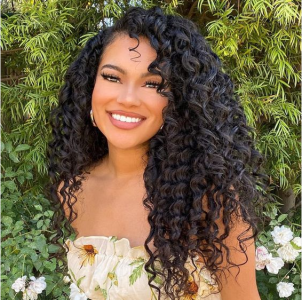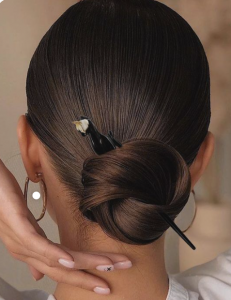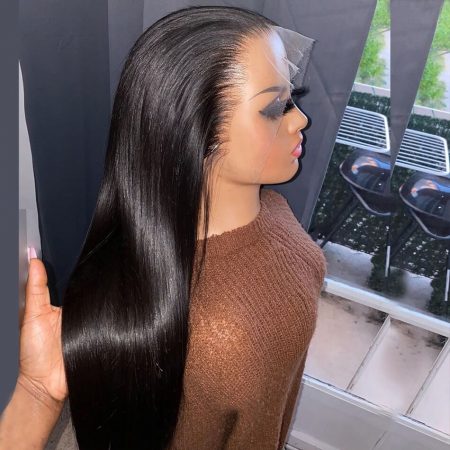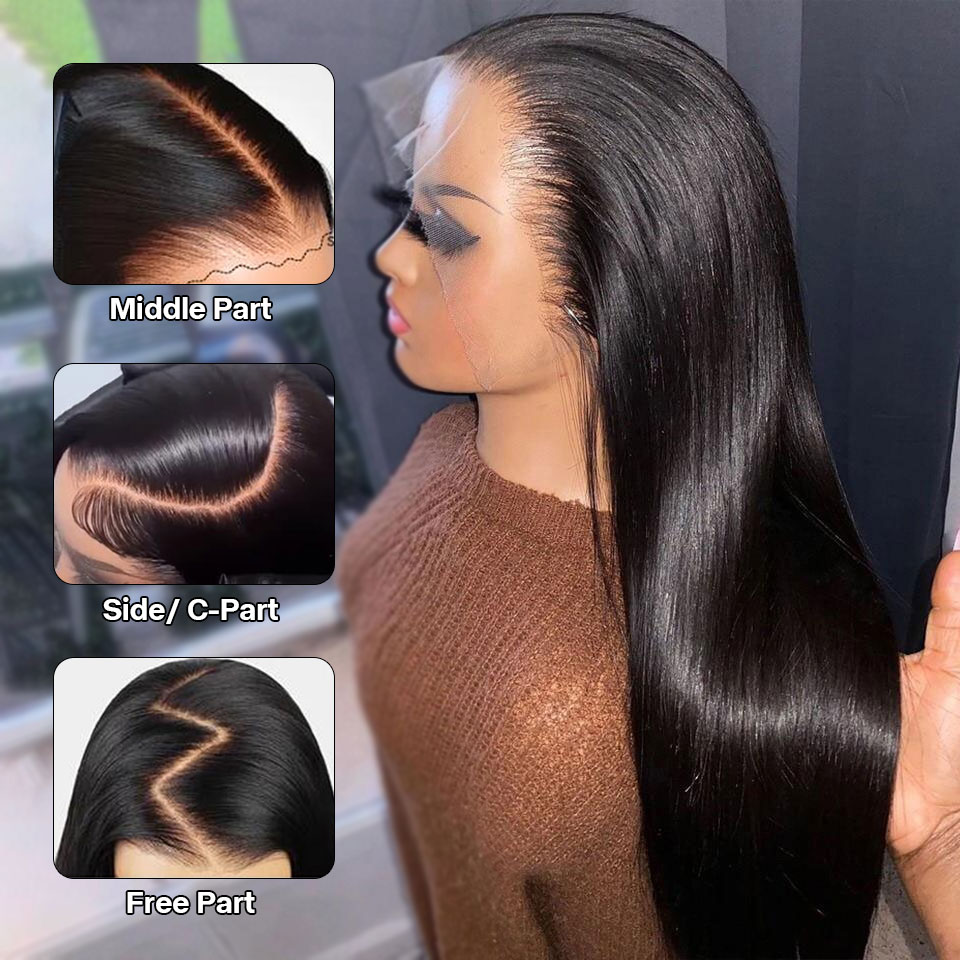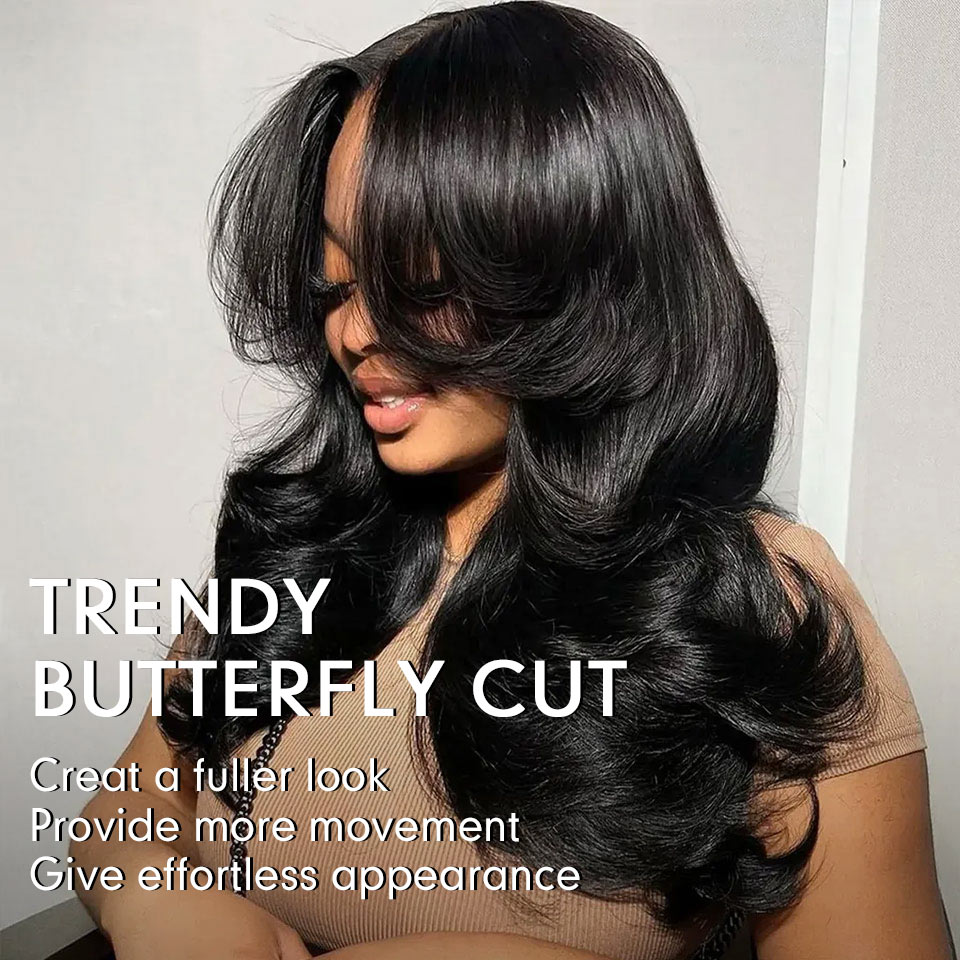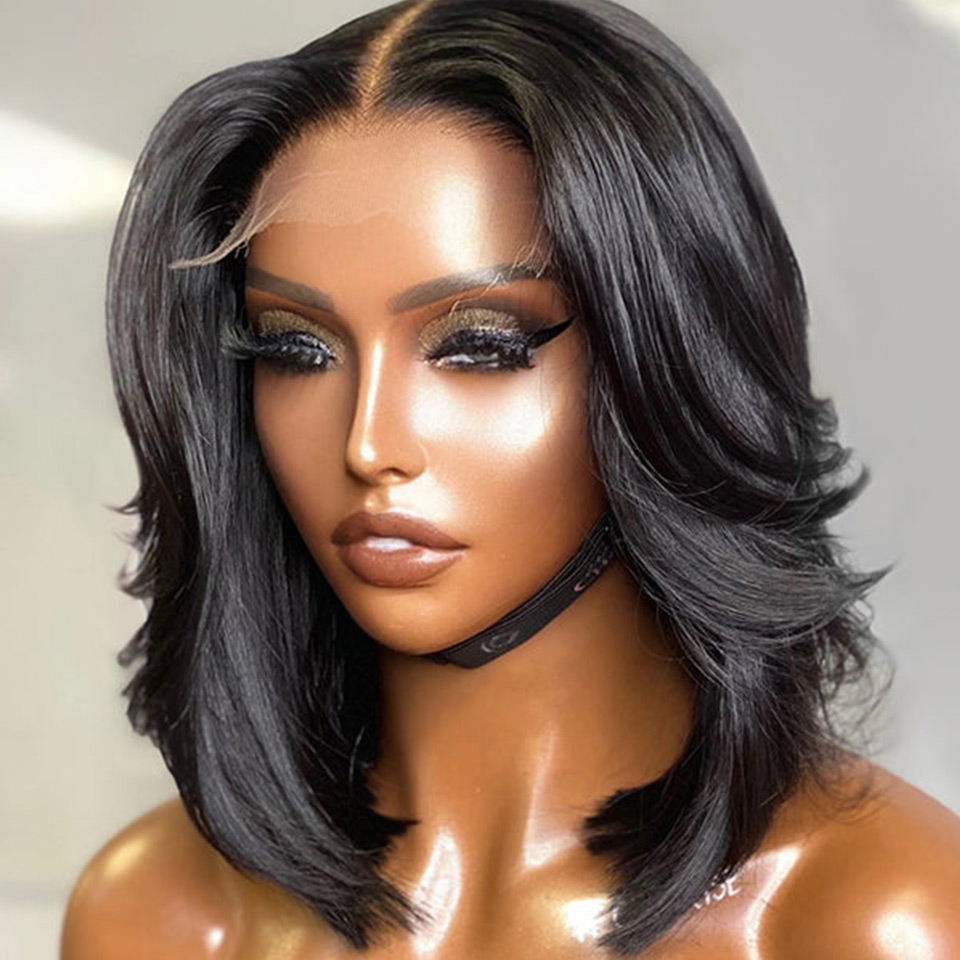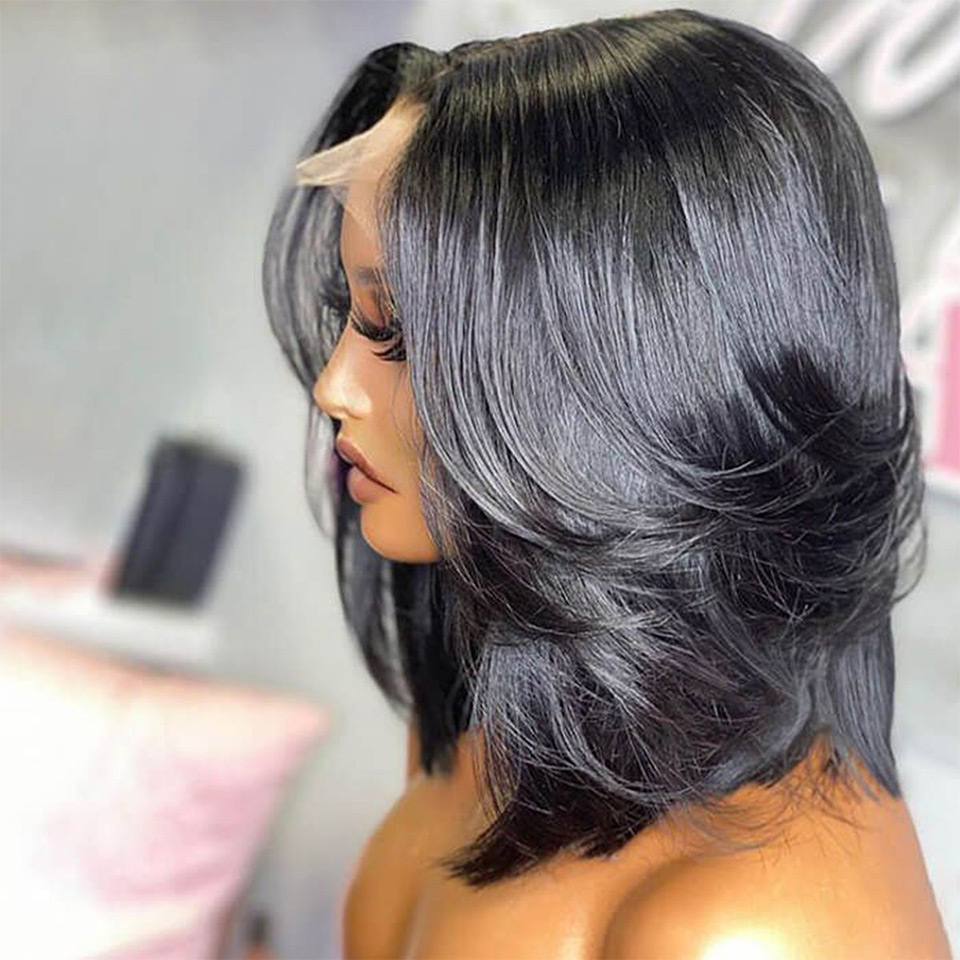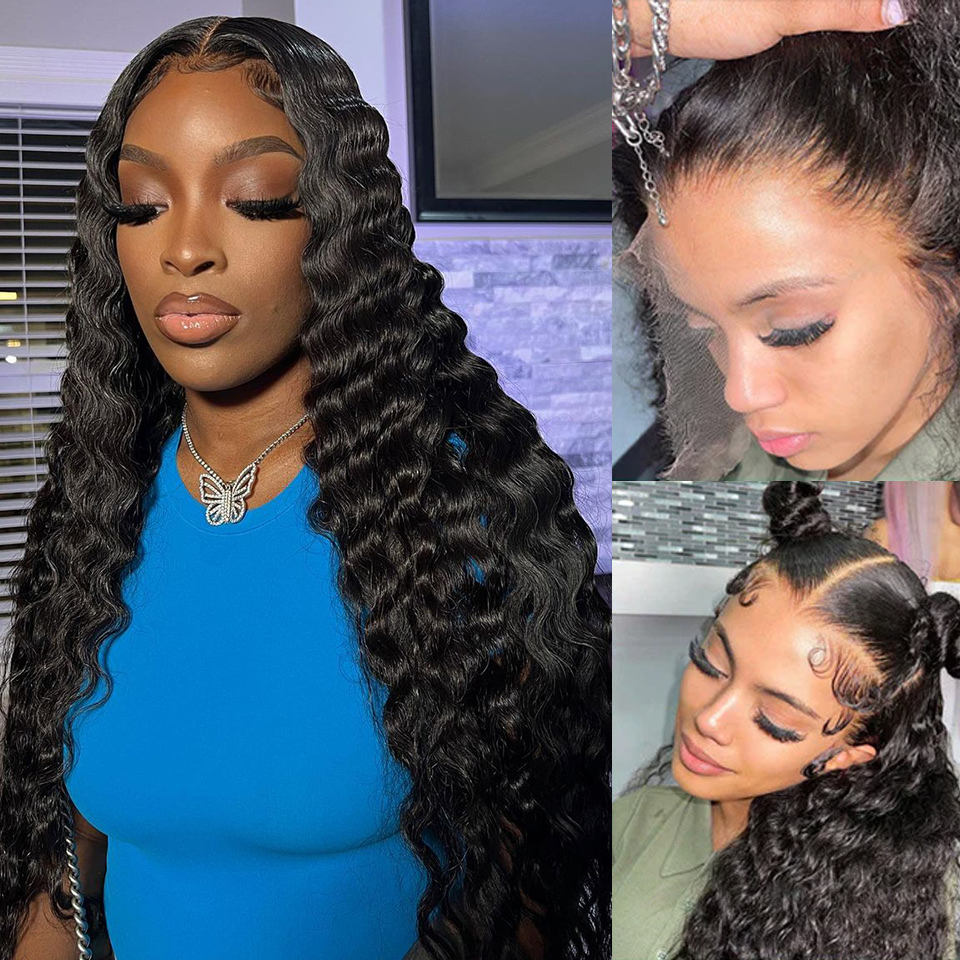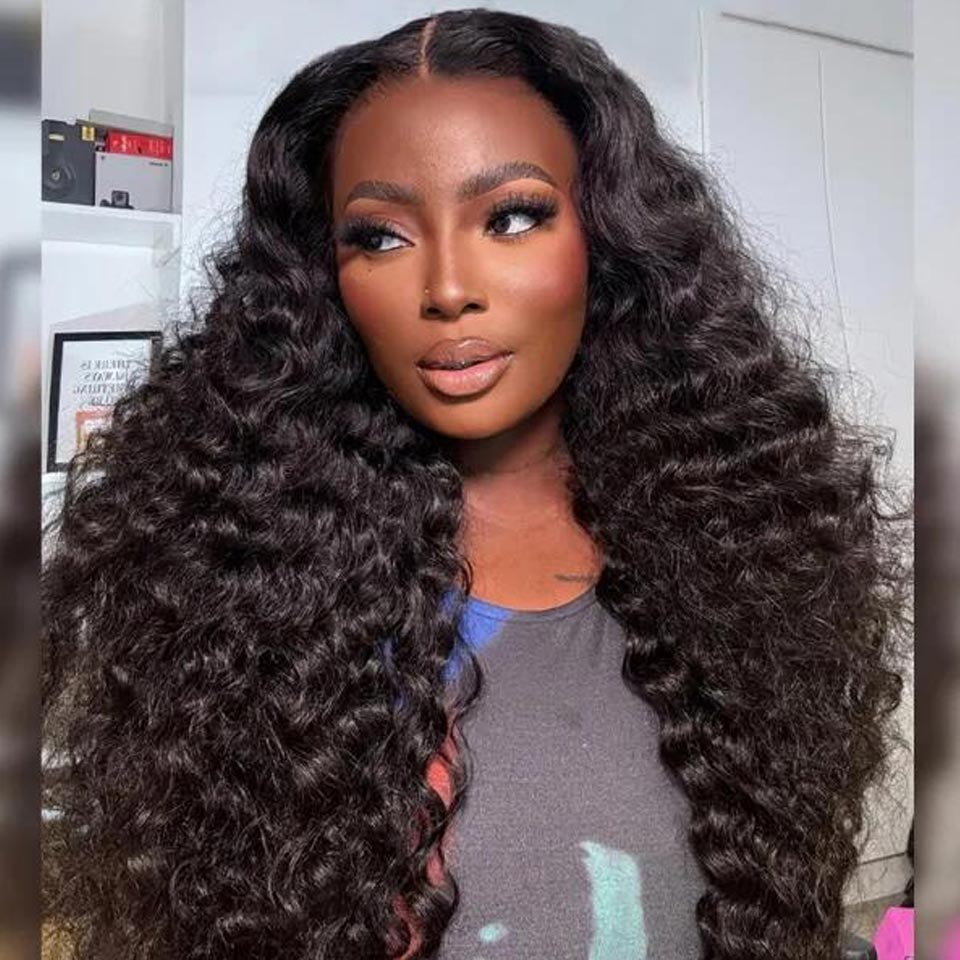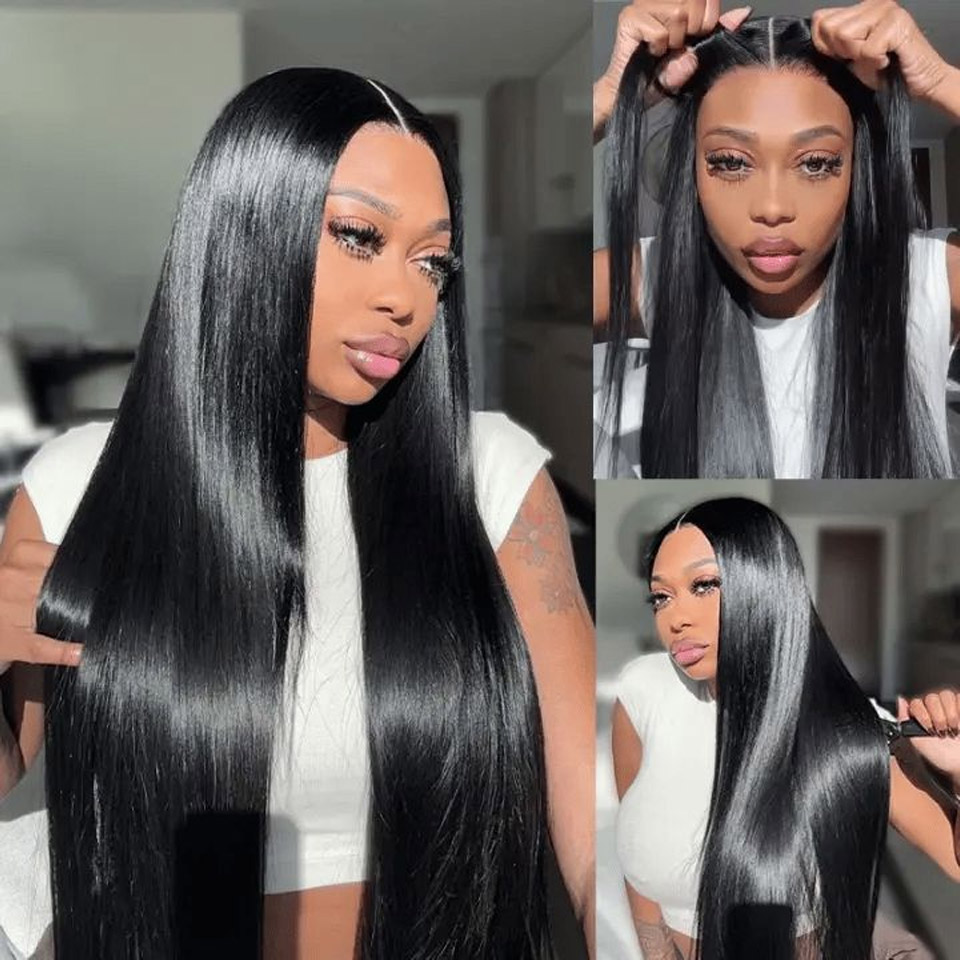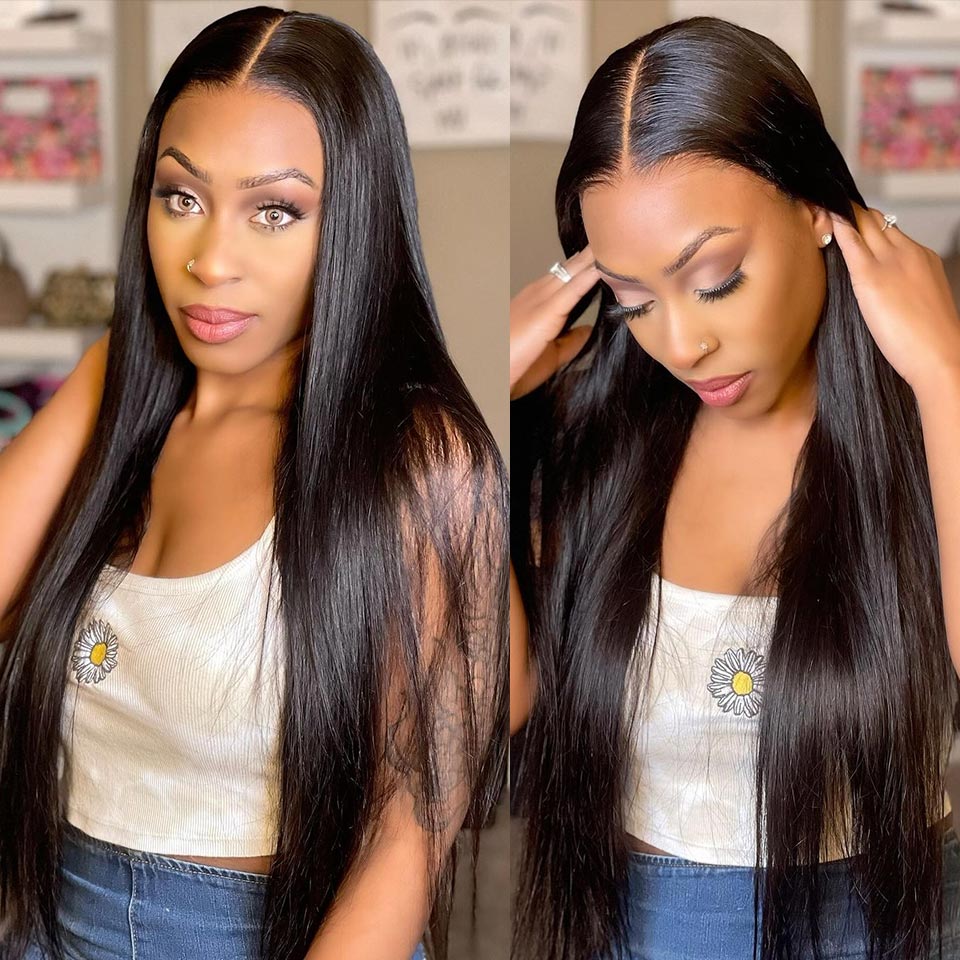In the ever-evolving world of fashion and beauty, wigs have become a popular accessory for people seeking to enhance their natural hair or experiment with different styles. Among the numerous wig options available, deep wave wigs and water wave wigs have gained significant attention. Both styles offer unique textures and versatility, allowing individuals to achieve their desired look effortlessly. In this article, we will explore the differences between deep wave wigs and water wave wigs, examining their characteristics, maintenance requirements, and styling options.
I. Deep Wave Wigs.
A. Definition and Characteristics.
Deep wave wigs are known for their deep, defined waves that closely resemble the waves of natural hair. The waves are usually uniform and give the hair a voluminous and bouncy look. The texture of deep wave wigs is characterized by well-defined S-shaped waves that start closer to the roots and gradually cascade down the length of the hair.
B. Hair Origin and Material.
Deep wave wigs are often made from high-quality human hair or synthetic fibers. Human hair deep wave wigs provide the most natural look and can be styled using heat tools. Synthetic deep wave wigs, on the other hand, offer a more affordable option and come pre-styled with the deep wave pattern, requiring minimal effort to maintain.
C. Styling Options.
Deep wave wigs can be styled in various ways to suit individual preferences. The waves can be brushed out for a softer, more natural look or defined further using curling products for a more dramatic effect. Additionally, deep wave wigs can be straightened temporarily using heat tools, providing versatility for different occasions.
D. Maintenance.
To maintain the quality and longevity of a deep wave wig, proper care is essential. Regular cleansing with mild shampoo and conditioner is recommended, followed by air drying or using a low-heat setting to avoid damaging the waves. It is crucial to detangle the hair gently using a wide-tooth comb or fingers to prevent unnecessary shedding or tangling. Additionally, storing the wig on a mannequin head or in a wig stand when not in use helps maintain its shape and prevent tangling.
Benefits Of Deep Wave Hair
Enhanced Definition and Texture:
Deep wave hair is known for its distinct and well-defined waves. The deep waves create a texture that adds depth and dimension to your overall look. This unique texture can help transform your hairstyle and give it a more dynamic and eye-catching appearance.
Long-Lasting Waves:
Deep wave hair tends to hold its wave pattern for a longer duration compared to other styles. The waves are typically more resilient and can withstand daily activities, maintaining their shape and definition. This longevity ensures that your hairstyle remains intact throughout the day, reducing the need for frequent restyling or touch-ups.
Effortless Beachy Vibes:
The deep waves of deep wave hair evoke a beachy and relaxed aesthetic. This makes it a perfect choice for those who want to achieve a carefree and summery vibe. With deep wave hair, you can effortlessly channel that beachy look, whether you’re heading to the beach or simply want to add a touch of casual elegance to your everyday style.
Versatile Styling Options:
While deep wave hair is known for its defined waves, it still offers versatility when it comes to styling. You can choose to brush out the waves for a softer and more natural look or enhance them further using curling products for a more dramatic effect. Additionally, deep wave hair can be straightened temporarily using heat tools, providing you with the option to switch up your style whenever desired.
Blend of Volume and Movement:
Deep wave hair strikes a beautiful balance between volume and movement. The waves create a voluminous look that adds fullness and body to your hair. At the same time, the waves cascade and flow gracefully, creating movement that adds an element of elegance and sophistication to your overall appearance.
Low Maintenance:
Despite its intricate and defined wave pattern, deep wave hair requires relatively low maintenance. The waves naturally fall into place, reducing the need for constant styling or manipulation. Regular cleansing and gentle detangling are typically sufficient to keep the waves looking their best. This low maintenance aspect makes deep wave hair a convenient choice for individuals seeking a stylish and hassle-free hairstyle.

II. Water Wave Wigs.
A. Definition and Characteristics.
Water wave wigs are known for their loose, flowing waves that resemble natural hair after it has been wet and allowed to air dry. The waves are typically looser and less defined compared to deep wave wigs, giving a more relaxed and carefree appearance.
B. Hair Origin and Material.
Similar to deep wave wigs, water wave wigs can be made from either human hair or synthetic fibers. Human hair water wave wigs offer the most authentic look and can be styled using heat tools, just like natural hair. Synthetic water wave wigs provide a more cost-effective option and retain their wave pattern even after washing.
C. Styling Options.
Water wave wigs provide numerous styling possibilities. The loose waves can be finger-combed for a natural and effortless look or enhanced using curling products to create tighter curls or waves. Furthermore, water wave wigs can be straightened temporarily using heat tools, allowing for versatile hairstyles.
D. Maintenance.
Proper maintenance is essential to keep water wave wigs looking their best. Regular washing with a gentle shampoo and conditioner is recommended, followed by air drying to preserve the waves’ integrity. It is crucial to handle the wig delicately and avoid excessive brushing or combing to prevent frizz and tangling. Storing the wig properly on a mannequin head or in a wig stand helps maintain its shape and prevents unnecessary matting or tangling.
III. Comparing Deep Wave Wigs and Water Wave Wigs.
A. Texture and Wave Pattern.
The key difference between deep wave wigs and water wave wigs lies in their texture and wave pattern. Deep wave wigs offer more defined, tighter waves, while water wave wigs provide loose, flowing waves. Individuals seeking a more voluminous and bouncy look may prefer deep wave wigs, while those desiring a relaxed and carefree appearance may opt for water wave wigs.
B. Styling Versatility.
Both deep wave wigs and water wave wigs offer versatility in terms of styling. They can be worn as-is for a natural look or styled further using heat tools or styling products to achieve different effects. However, deep wave wigs tend to hold their shape better when straightened temporarily, while water wave wigs may lose some of their wave definition when straightened.
C. Maintenance Requirements.
In terms of maintenance, deep wave wigs and water wave wigs require similar care. Both styles should be washed regularly with gentle products and air-dried to maintain their wave patterns. However, due to the tighter waves in deep wave wigs, they may require more attention when detangling to prevent tangling and shedding.
The Benefits Of Water Wave Hair.
Increased Volume and Length:
Water wave hair has a natural ability to add volume and length to your hair. The loose waves create an illusion of fuller and thicker hair, making it an ideal choice for those with fine or thinning hair. With water wave hair extensions or wigs, you can instantly transform your look and achieve the desired volume and length without damaging your natural hair.
Easy to Blend:
Water wave hair blends seamlessly with most hair textures, making it suitable for a wide range of individuals. Whether you have straight, wavy, or curly hair, water wave extensions or wigs can be effortlessly integrated into your natural hair, creating a cohesive and natural-looking hairstyle. The ability to blend well with different hair types adds to the versatility and appeal of water wave hair.
Heat-Free Styling:
Unlike other hairstyles that require constant heat styling, water wave hair allows you to achieve a stunning look without the need for heat tools. The natural waves retain their shape and texture, eliminating the need for curling irons or straighteners. This heat-free styling approach not only saves time but also reduces the risk of heat damage, ensuring the long-term health of your hair.
Breathable and Comfortable:
Water wave hair extensions and wigs are often designed with lightweight and breathable materials, ensuring comfort even when worn for extended periods. The construction of these products allows for proper airflow to the scalp, preventing discomfort or irritation. This is particularly beneficial during hot and humid weather conditions, as it helps to keep the scalp cool and reduces sweat build-up.
Versatile for Updos:
While water wave hair looks beautiful when left down, it also lends itself well to various updo hairstyles. The waves provide texture and volume, making it easier to create elegant and intricate updos such as braids, buns, or ponytails. Water wave hair adds a touch of romance and sophistication to any updo, allowing you to experiment with different hairstyles for special occasions or formal events.
Which one are better?
Choosing between a deep wave wig and a water wave wig ultimately depends on individual preferences and desired styles. Deep wave wigs offer tighter, more defined waves, providing a voluminous and bouncy appearance, while water wave wigs offer looser, flowing waves, giving a relaxed and carefree look. Both styles provide versatility in terms of styling options and maintenance requirements. By understanding the characteristics and distinctions of deep wave wigs and water wave wigs, individuals can make informed choices to achieve their desired aesthetic effortlessly.






